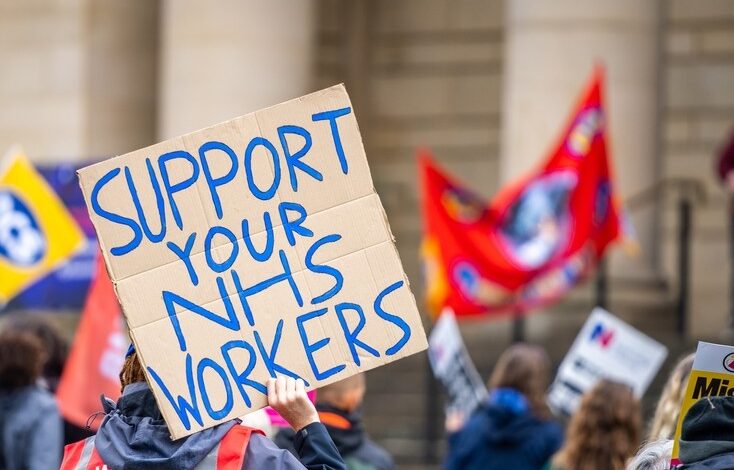NHS strikes in the UK: What happens next?

The NHS is in crisis. With the largest nursing strike in UK history currently underway, thousands of patients across the country will be left without immediate access to the quality care they need.
If you’re unsure why the NHS are striking at such a crucial time, you’re not alone. We’ve outlined a few of the main causes of the challenges faced by the health service – along with a little bit more information about the strikes – in our quick guide below.
Read More: Migrating to Canada: Job Opportunities That Will Ease The Process
Why is the NHS under so much pressure?
Since the NHS is an all-encompassing, nationwide service that offers help to every patient seeking it, insufficient funding is a primary concern. Mounting pressure on the health service has also been caused by:
- Chronic understaffing
- Excessive workloads, leading to staff burnout
- Pressure on the GP workforce
- Long waiting lists for treatment
- Insufficient hospital bed numbers
- Deteriorating, inadequate buildings
The NHS has been under extreme pressure for a long time, and even more so since the outbreak of the Covid-19 pandemic. The unsustainable strain on staff has led to a crisis point, partially materialized by current and upcoming strikes.
Why are NHS staff striking?
Trade unions representing NHS staff – including the British Medical Association – are disputing pay with the government. The 2022/23 pay award, set out by the government, fails to offer sufficient incomes to various professionals across the sector. Lower band salaries, as set out under the current proposition, simply wouldn’t fall in line with rising living costs.
Pay is an unavoidable matter of urgency to keep emergency services running efficiently – and to allow the NHS to attend to areas requiring overdue improvement.
Read More: How to Get into Medical Negligence Law
Could the NHS strikes have serious consequences?
Emergency services for patients with life-threatening conditions will continue to run through the strikes. However, there is a slight chance that shortages on wards and staff absences could cause issues. Additionally, nurses, doctors, and consultants covering extra hours will be fatigued and more prone to making critical errors.
Consequentially, we could see a slight increase in certain types of medical negligence claims, especially those from inpatients needing round-the-clock treatment and assessment.
How long will the NHS strike last?
In December 2022, NHS strikes will be widespread.
Ambulance staff are expected to strike until at least Wednesday 28th December, but future strikes could be possible. While the NHS want to see a resolution as soon as possible, pay is ultimately down to the government and trade unions to negotiate.
What’s the outlook like for the NHS in 2023?
Huge efforts will be made to grow and sustain the NHS workforce. More university places have been offered to medical students, expanding the workforce for decades to come. Targeted campaigns will aim to inspire young people to enter medical fields too.
Despite immense pressures through the ongoing cost-of-living crisis, the NHS strives to continue to deliver an exceptional level of care in all areas of the UK.












One Comment